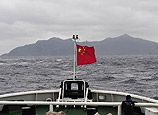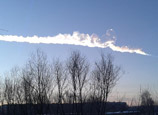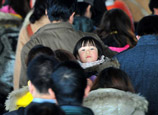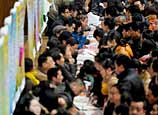
ANTAGONISM BETWEEN U.S. AND DPRK
On the root cause of the nuclear test, Liu, the Tsinghua professor, said the DPRK's real target was the United States, instead of China or South Korea.
"On this issue, the United States, South Korea and Japan should be blamed for the failure of their policies. Those countries should reflect on what has happened," he said.
Liu said the nuclear test has shown that a policy of sanctions or coercion could not compel the DPRK to submit, adding that the country would have a strong sense of crisis if it was not offered a safe international environment and an open international economic policy.
"The current situation in Northeast Asia is imbalanced, with South Korea and Japan sheltered under the U.S. nuclear umbrella," said Ruan Zongze, deputy director of the China Institute of International Studies (CIIS).
At the same time, he said, the military strength of South Korea and Japan is not weak and the DPRK's security pressure mainly comes from the United States, the real target of its nuclear deterrence.
Tao, the CASS research fellow, also attributed the complexity of the nuclear issue on the Korean Peninsula to the 60-year-old antagonism between the DPRK and the United States.
RESOLUTION THROUGH DIALOGUE, NEGOTIATIONS
On a resolution to the issue, Shi, the professor at Renmin University, said the key is how to push forward denuclearization on the peninsula.
At a time when various efforts have failed to make headway, relevant resolutions of the UN Security Council should be implemented and measures of sanctions should be established to curb the DPRK's development of nuclear weapons, he said.
Liu, the Tsinghua professor, also said history has proven that when Washington and Seoul carried out the so-called "Sunshine Policy" toward the DPRK, tensions on the Korean Peninsula would be eased, which would provide conditions for realizing denuclearization.
When the mechanism of the six-party talks or dialogue played a dominant role, tensions would also be eased, he said, adding that otherwise tensions would escalate.
Facing military exercises, sanctions and confrontation, the DPRK would go its own way, a choice for self-protection, Liu said.
He said China has called for denuclearization of the Korean Peninsula and a solution to the issue through the six-party talks and dialogue within the framework of the United Nations.
Although the policy has not resolved the issue so far, it at least does not intensify the dispute, Liu said.
Ruan, from the CIIS, expressed the hope that all parties concerned would resume diplomatic contact after a period of time.
"In the future, distrust and antagonism between the United States and the DPRK should be resolved by mechanisms of multilateral dialogue like the six-party talks," he said.
"The Chinese side should continue to play the role of a peacemaker and mediator," Ruan said. "After all, only negotiations could resolve the issue fundamentally."

















 Buzzwords during 2013 Spring Festival holiday
Buzzwords during 2013 Spring Festival holiday


![]()
